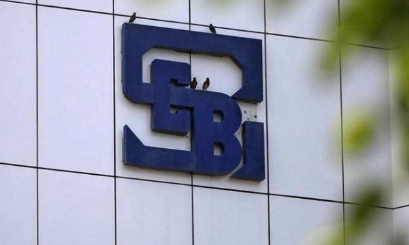SEBI In recent developments that have sparked significant political and public interest, the Chief of the Securities and Exchange Board of India (SEBI) is facing scrutiny over allegations related to rental income received from a unit of a company currently under investigation. The controversy has brought to light concerns about transparency and potential conflicts of interest within one of India’s most critical regulatory institutions.
The Allegations
The Congress party has raised serious questions regarding the financial dealings of the SEBI chief, specifically focusing on rental income purportedly received from a unit of a company that is under SEBI’s regulatory lens. According to the allegations, the SEBI chief, in his personal capacity, SEBI has been receiving rental payments from a property that is linked to a firm facing regulatory scrutiny.
The Congress party has accused the SEBI chief of a potential conflict of interest, arguing that the rental income could influence or compromise the fairness and impartiality of the regulatory oversight being conducted by SEBI. The party has called for a thorough investigation into the matter, emphasizing the need for transparency and accountability in the management of regulatory bodies. 
The Context of SEBI’s Role
SEBI is the apex regulatory authority overseeing the securities and commodities markets in India. Its role is crucial in ensuring the integrity, transparency, and fairness of financial markets. SEBI’s responsibilities include regulating market participants, protecting investor interests, and maintaining market confidence.
Given SEBI’s pivotal role in the financial system, the integrity and impartiality of its leadership are of paramount importance. Any allegations of conflicts of interest or undue influence can have significant implications for the credibility of the entire regulatory framework.
Details of the Allegations
According to reports, the chief owns a property that is leased to a firm currently under SEBI’s regulatory scrutiny. The Congress party has highlighted that this arrangement might raise questions about the impartiality of the regulatory actions taken by regarding the firm. The rental income, they argue, could create a perceived conflict of interest or even an actual conflict if the SEBI chief’s financial dealings are seen as influencing regulatory decisions.
The chief has responded to the allegations by stating that all financial transactions are conducted in accordance with the law and that there is no conflict of interest in their role. They have also emphasized that SEBI’s regulatory actions are guided by established procedures and are not influenced by personal financial interests.
Reactions and Responses
The allegations have drawn responses from various quarters, including political figures, regulatory experts, and the public. The Congress party has intensified its demands for an independent investigation into the matter. They argue that transparency is essential for maintaining public trust in regulatory institutions, and any appearance of impropriety must be thoroughly examined.
On the other hand, supporters of the chief have pointed out that accusations without substantive evidence can undermine the credibility of regulatory institutions. They argue that the chief’s professional conduct should be judged based on their performance and adherence to regulatory norms, rather than speculative claims about personal financial dealings.
The Importance of Transparency
The controversy underscores the critical importance of transparency and accountability in regulatory bodies. For institutions like SEBI, maintaining the highest standards of integrity is crucial to their effectiveness and public trust. Even the appearance of a conflict of interest can erode confidence in the institution’s ability to perform its duties impartially.
In response to the allegations, there is a call for greater transparency in the financial dealings of public officials and regulatory leaders. Ensuring that all financial transactions are disclosed and subject to scrutiny can help prevent conflicts of interest and reinforce the integrity of regulatory processes.
Potential Implications
The implications of this controversy could be far-reaching. If the allegations are substantiated, SEBI it could lead to calls for the chief’s resignation or removal from office. It might also prompt a review of SEBI’s procedures for managing conflicts of interest and ensuring the impartiality of its leadership.
For the broader financial regulatory environment, the controversy could have a chilling effect, influencing how regulators handle sensitive cases and interact with market participants. It highlights the need for robust mechanisms to address and manage potential conflicts of interest in regulatory roles.
Moving Forward
As the situation unfolds, the focus will likely be on the outcome of the investigation and the steps taken by SEBI and the government to address the allegations. An independent inquiry into the matter could provide clarity and help restore confidence in leadership and its regulatory actions.
For now, the controversy serves as a reminder of the importance of maintaining the highest standards of integrity in regulatory institutions. It highlights the need for transparency and accountability in ensuring that financial markets operate fairly and that regulatory bodies can effectively carry out their mandates.
Conclusion
The scrutiny of the chief over allegations of rental income from a firm under investigation has sparked a significant debate about transparency and conflicts of interest within India’s regulatory framework. As the investigation proceeds, it is crucial to uphold the principles of fairness and accountability to maintain the integrity of regulatory institutions.
For the public and market participants, the controversy serves as a stark reminder of the importance of trust in regulatory bodies. Ensuring that such institutions operate with the highest levels of transparency and impartiality is essential for maintaining confidence in the financial system and its oversight mechanisms. ALSO READ: Should Digital Platform Owners Be Held Liable for User-Generated Content?2024